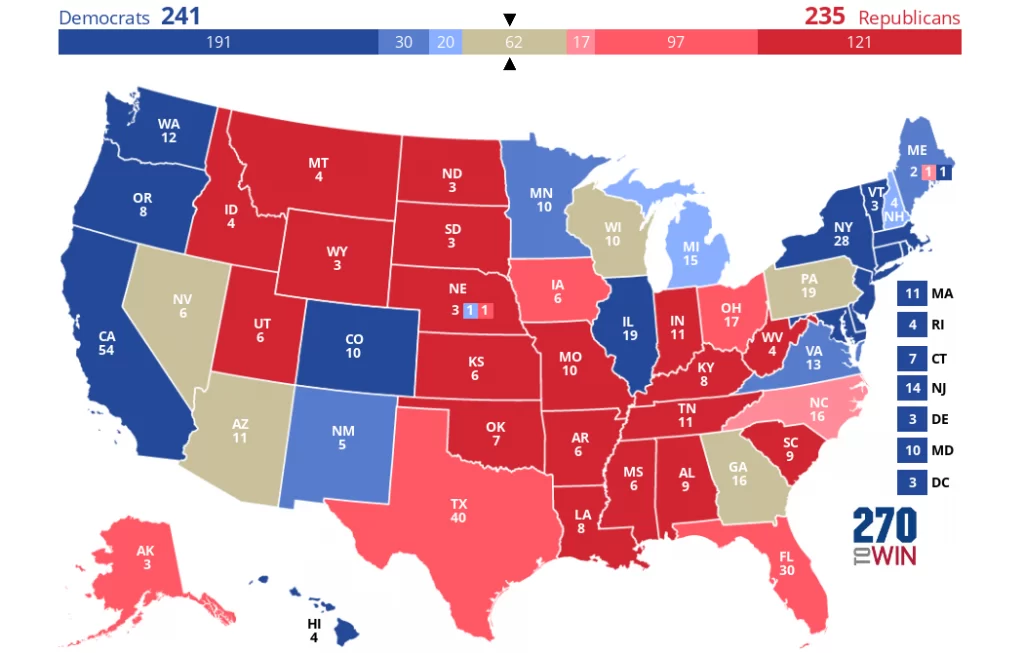Tech-Hub Snub: Biden’s Tennessee Pass Raises Qs of Awards Methodology
As a definitive “Red State,” is Tennessee simply perceived as including too many registered Republicans to qualify for “Regional Innovation and Technology Hubs (Tech Hubs)” status, as per President Biden’s Department of Commerce?

Unless the answer comes straight from what data clearly show, then what’s the point of asking?
So let’s look at the data.
But first, some context… And granted, as a Tennessean, I’m biased.
Speaking in the interest of my local region of East Tennessee (home to Knoxville’s Tennessee Valley Authority and the adjacent Oak Ridge National Laboratory – no slouch in the globally respected clean-energy research sector and home to “Frontier,” one of the world’s fastest supercomputers… the first to go exascale, in fact), it’s hard not to raise questions about the rationale for not deeming our region tech-worthy enough to pass Biden muster for said “Hub.”
My region’s local newspaper, the Knoxville News Sentinel, reported today about the Biden Administration rejecting all five Tennessee-based Tech Hub applications – including the one from Knoxville / Oak Ridge.
“The CHIPS and Science Act, signed into law by President Joe Biden last August, set aside $10 billion to establish these tech hubs, which will receive special access to federal funding and assistance for their region from several federal departments,” according to reporter Daniel Dassow, who is the KNS’s high tech growth journalist.
His news report also stated “the selection of hubs appeared apolitical,” but I have to ask the painfully obvious question:
According to whom?

It’s unclear how many applications came from which states, although the White House said 370 hubs competed for 31 officially designated awards.
I get that the competition was significant.
That said, though, as per the “FACT SHEET: Biden-Harris Administration Announces 31 Regional Tech Hubs to Spur American Innovation, Strengthen Manufacturing, and Create Good-Paying Jobs in Every Region of the Country,” the break-down of Red / Blue states receiving awards merits a deeper look, if the word “apolitical” is to be interjected.
The website 270towin.com breaks down historical voting data per state to determine all states’ current “Red State” (conservative / Republican), “Blue State” (liberal / Democrat) and “Swing” / “Toss Up” State status points nationwide.
For starters, in the United States, there are 20 states of the 50 that are deemed “Blue States,” well-outnumbered as compared with 25 states deemed “Red” ones, also by virtue of pure voting history.

On its face, if Americans are to believe that the Tech Hub selection process was not guided in large part by pure political optics, then one must immediately question the basis of the Biden Administration’s exact 13 / 13 split of Tech Hub awards granted to known Red States versus Blue States (with 14 skewing Blue if you count Biden’s award to non-state Puerto Rico, noted by Pew Research just last year as skewing heavily left-wing).
Five additional states are deemed “Toss Ups” for Decision ’24 (Arizona, Georgia, Nevada, Pennsylvania, and Wisconsin). All but one of these states (Arizona) received Biden’s Tech Hub status, with Wisconsin even doubling up by receiving two such designations.

Looking at the Hub award listing through the lens of electoral votes for the U.S. Presidential election, it’s interesting that Red State Hub-awardee electoral votes only outnumber Blue States for the reason that Texas was included, which automatically added 40 “Light Red” electoral votes onto the Red State tally.
Other U.S. Presidential political footnotes may factor in as to the actual geographic territories most likely to benefit from the Hubs’ economic-development and workforce boost, like – as but one example – the Biden award to Florida (a Red State) actually going to a heavily blue Miami-Dade County-based application, according to the Biden Administration’s own Fact Sheet.
So, the supposed case for partisan equitability by Florida even being included as a “Red State” beneficiary may be somewhat moot, given the very blue footprint of the Biden Tech Hub award’s actual market impact.

Hub status also was granted to 61 Toss-Up State electoral votes of the 71 that even exist.
Of those four Decision ’24 swing states receiving two Tech Hub designations instead of only one, a majority of these double awards were handed to Blue States…
Seventy-nine (79) Blue electoral votes received double-grantee status as Tech Hubs, as opposed to only 32 Red electoral votes getting the double nod. Ten (10) “Toss Up” electoral votes scored double by way of Wisconsin… a state that factored heavily in the narrow 2020 Biden win.
So, the question remains:
Were these taxpayer-funded Tech Hub awards based on a pure meritocracy of the proposals… particularly the timing of only one year before Americans go to the polls in Decision ’24?
It’s difficult for anyone on the outside of the system to judge.
But in the least, it’s stunning that a region like the Knoxville / Oak Ridge Corridor — with such well-established, world-class (not just national-caliber) federal research facilities, global best-in-class on-site computing power, dynamic base of public-private partnerships, a long-standing clean-energy innovation focus (well pre-dating the Biden or Trump or Obama or even Bush administrations), and multiple decades of technology-transfer expertise — would not secure at least one Biden Tech Hub award.

